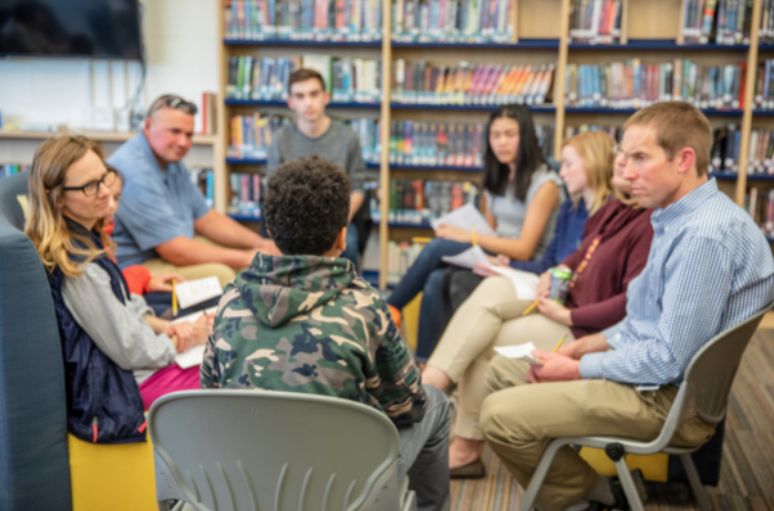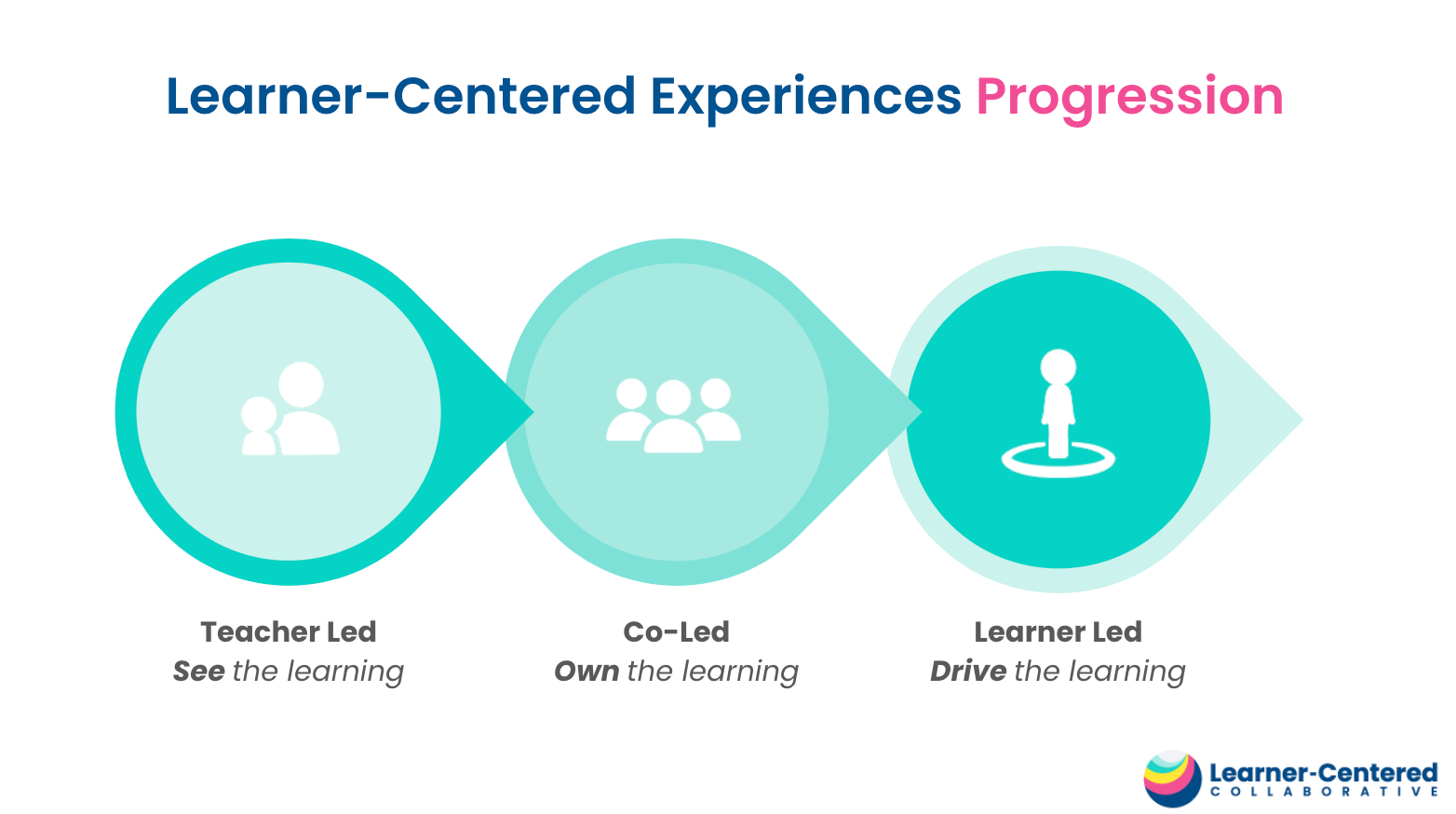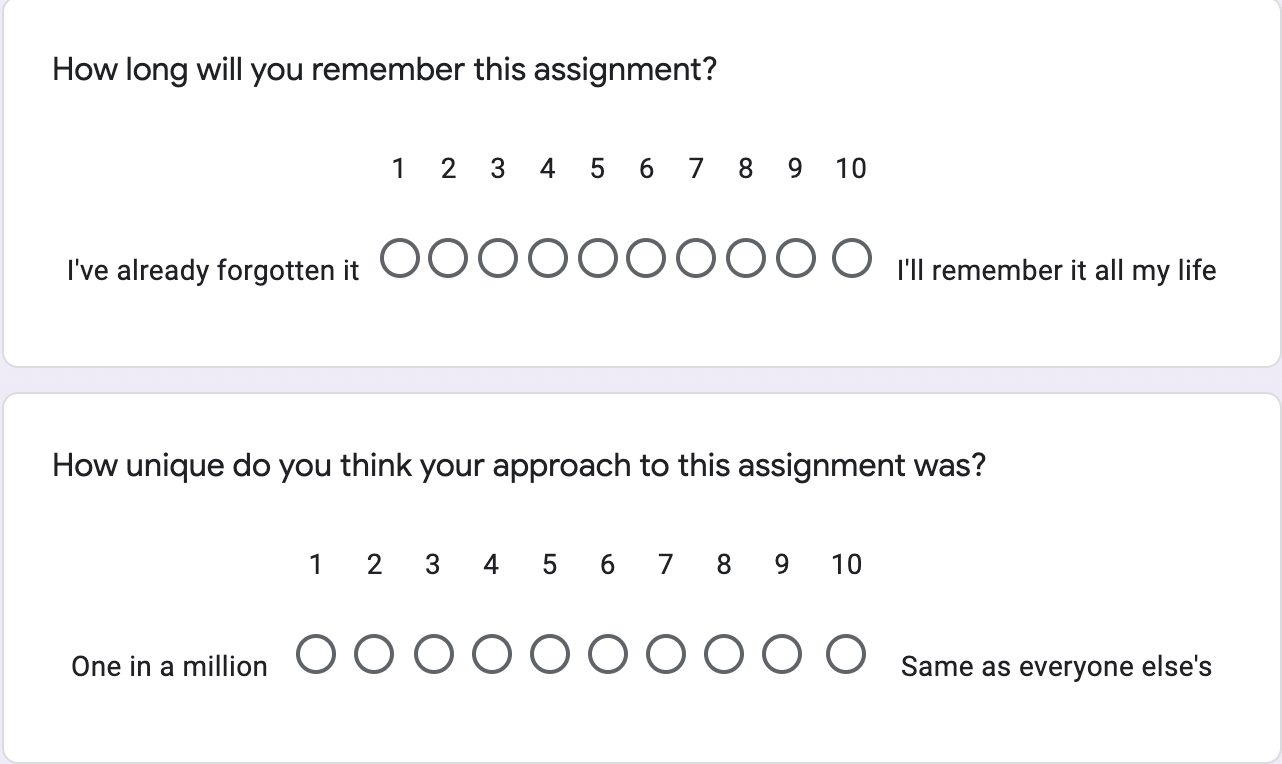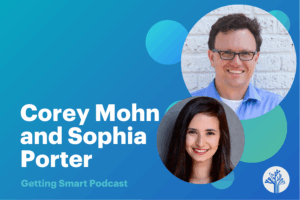Student-Driven Assessment: Building Learner Agency Through Shared Ownership
Key Points
-
Educators are often encouraged to think of assessment as a fundamental aspect of the learning cycle and an accelerator for growth and development.
-
When seen through the lens of a learner-centered paradigm, assessment is also an important driver for agency and identity, helping to inform an empowered view of the learner.

By: Kim Carter and Devin Vodicka
Educators are often encouraged to think of assessment as a fundamental aspect of the learning cycle and an accelerator for growth and development. When seen through the lens of a learner-centered paradigm, assessment is also an important driver for agency and identity, helping to inform an empowered view of the learner. For educators, this requires modeling, co-construction of contextualized experiences, deep listening, noticing, and cultivation of assessment as the learner’s story.
Unfortunately, this idealized view of learner-centered assessment for learning has not been the actual experience for most students and educators. Historically, we’ve taken an outside-in approach in education, beginning with the needs of policymakers and working from there to implement assessment systems “to” students. This results in a series of disconnected, decontextualized measurements that lack purpose and meaning, often missing key developmental indicators and accomplishments of the learner. The overall result is limited insights into the actual depth of learning and limited enduring understanding for the students.
Ironically, when it comes to assessment we seem to neglect the common-sense process of modeling and gradually shift ownership and responsibility to the learner. It is the familiar “I do – We do – You do” process that most teachers implement in other aspects of their practice that seems conspicuously absent when we think about assessment, evaluation, and understanding.

While it is not yet common practice, we see inspiring examples of student-driven assessment in pockets of innovation throughout the educational ecosystem. The rise of student-led conferences, learning exhibitions, and more frequent use of learning portfolios are models that can be adapted and implemented for widespread use.
Casey Baird, History Teacher in the Upper School at Crossroad School in Santa Monica, CA, says his biggest aspiration in assessment is to build authentic contexts where the underlying skills are embedded in real world formats. From Casey’s point of view, one of the most critical and revealing steps in the learning process is when learners engage in giving and getting feedback. As part of a recent project, Casey shared an overview of Bloom’s taxonomy with his 11th-grade history students, asking them to create their own criteria to demonstrate the various levels that could help them “express what they notice, admire, and love about a project.” This is a powerful example of building learner agency through shared ownership as learners collaboratively define and apply quality criteria to their own and their peers’ work.
One way to begin incorporating authentic learner voice into assessment is to include (and teach) reflection. Starr Sackstein advocates having learners complete a reflection that prefaces the assignment. She notes she always reads the learner’s reflection before she reviews the assignment they’ve submitted, as that contextualization impacts how she views the work. Incorporating this type of narrative reflection into the learning process builds learner capacity for self-assessment, while simultaneously scaffolding learner agency for setting and monitoring progress toward learning goals.
Educators ready to go a step further may want to incorporate questions to gather data that can then be shared back with learners for collaborative sensemaking to improve the value and engagement of assessments. For example, a quick Google form with the two following questions could be a good starting point:

Using their aggregated responses as a jumping off point for dialogue with learners about whether assignments should be memorable, why or why not, and if there’s value in engaging with an assignment in a unique way opens the door for a substantive discussion about the potential roles of assessment in their learning and their lives and can lead to shared criteria for meaningful assignments and quality engagement.
Incorporating assessment practices that engage learners in developing and applying quality criteria, reflecting on their assessment experiences, and collaboratively making meaning of those experiences offer educators rich opportunities to model and facilitate co-construction of learning experiences that cultivate deep learning while developing empowered identities grounded in agency and enduring understandings. Through this process, students can know themselves, thrive in the community, and actively engage in the world as their best selves.
The opportunities to inspire and empower all learners through shifting to more student-driven assessment are clear. What if we approached assessments as opportunities to build learner identity and agency, to see assessments as maps of exploration, progress, and emergent identity? Every learner deserves the opportunity to have the story of their journey be seen, heard, and valued.
Kim Carter is the founder and Executive Director of the Q.E.D. Foundation, a national nonprofit committed to creating, inspiring, cultivating, and sustaining learner-centered communities that develop and empower learner agency, equity, and community collaboration.
Devin Vodicka is the author of Learner-Centered Leadership and the CEO of Learner-Centered Collaborative, a national nonprofit that partners with educators to define whole-learner outcomes, design meaningful learning experiences, and create the enabling conditions for their unique journey to inclusive and equitable learner-centered education.




0 Comments
Leave a Comment
Your email address will not be published. All fields are required.